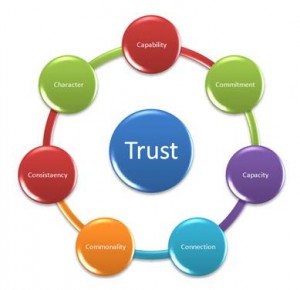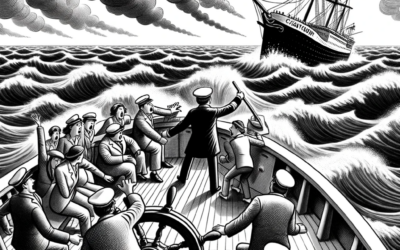What if you did something shameful in front of your employees or they found something out about you that you would prefer not to be known? How might your story unfold?
You are multifaceted, and there are more dimensions to you than most people know. In fact, there are parts of your character that are unknown to you because the circumstances have not presented themselves yet for you to discover–or you may have a blind spot to that part of yourself.
When you behave a certain way with your inside group and expect those behaviors to be kept confidential, you run a significant risk. How many members of your inside group in high school or college are still part of that group? How many members of your inside group have you had over the course of your life?
While you may indeed have some lifelong friends, members of your inside group have and will continue to change. Here’s my point: your past indiscretions (if you’ve shared them with your inside group) are likely known by a wide range of people and might, at any time, become public.
The other day when my family was hanging out at the Walker Art Center, we bumped into the kids’ Head of School (a great guy). He was with his old roommate, and I said to the visiting roommate, “I can’t miss this opportunity to ask about those embarassing situations that you know about your buddy.” Everyone present had one of those, “Oh my god, you’re not going to say…” looks on their face. Like a true friend, the roommate implied much and said absolutely nothing.
Each day you wake and walk out into the world with a choice. That choice is one of character. Character is that part of yourself that stands up to the pressures of the situation and withstands monumental power to cave in and go against what you know you, value, and believe to be right and true. It may be truth over deceit, fidelity over hedonism, business over leisure, friends over family, business over family, family over work, and so on. As you make decision after decision, you shape your character and that is what eventually defines you over time. People see how you show up and what you stand for above all else.
Although you may believe that the world is not standing by watching your life take place, the people who matter are: your friends, family, and coworkers. They want to see how you respond in relaxed times and tense ones.
Think about this now as it relates to your organization. What if your employee, whom you love, leaves after seeing your character weakened at a vulnerable moment? And then that employee leaves and goes to work for the competition? You may soon be looking for a new town to hang your hat (as if that is possible anymore).
Your coworkers aren’t immune to lapses in judgment either. Their decisions shape their character on a daily basis, too. Without being overly moralistic (prudes generally aren’t well-liked), you can help shape character by reminding them what you know and like about their character. And you can protect yourself by not putting a great deal of trust in those who prove unworthy of it–to you or others.




